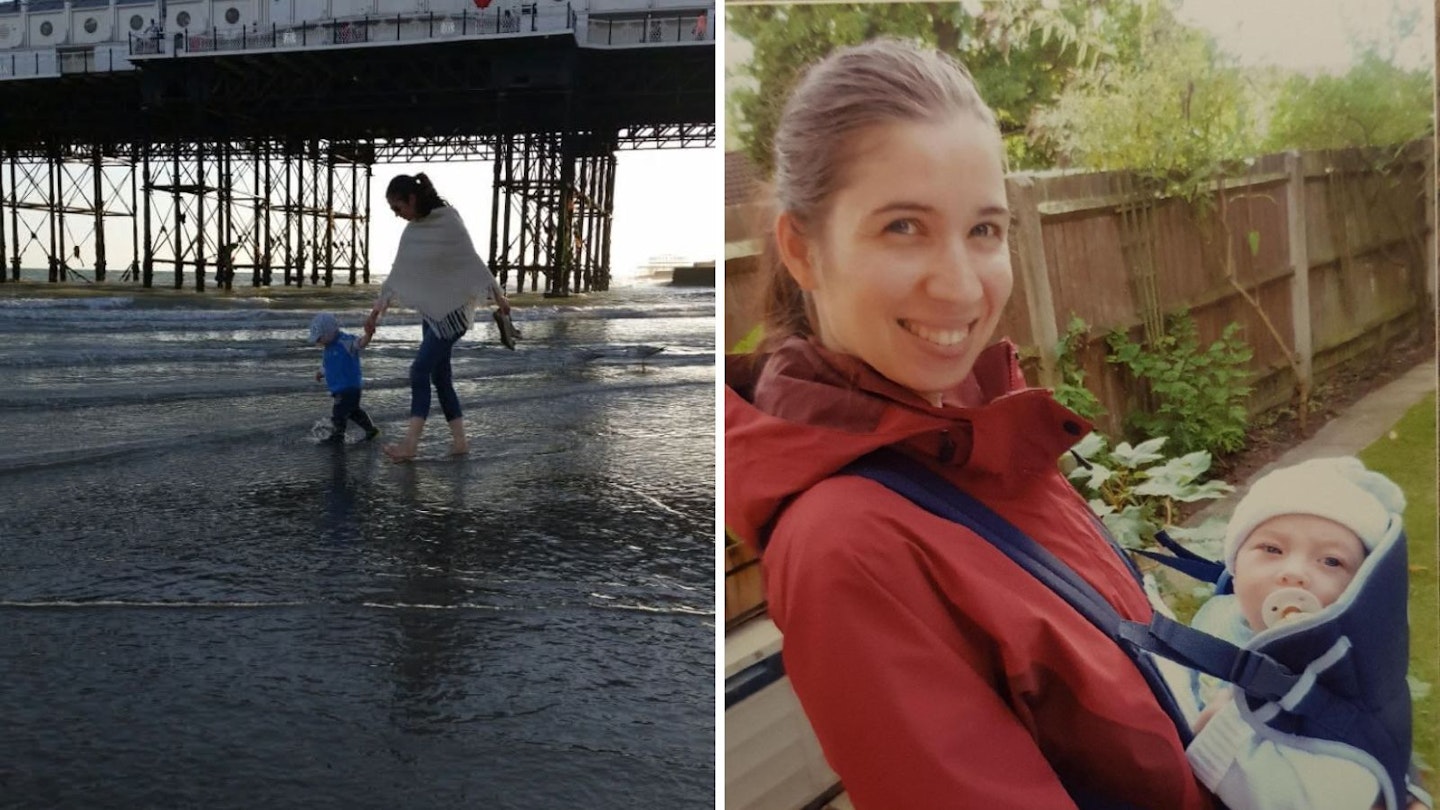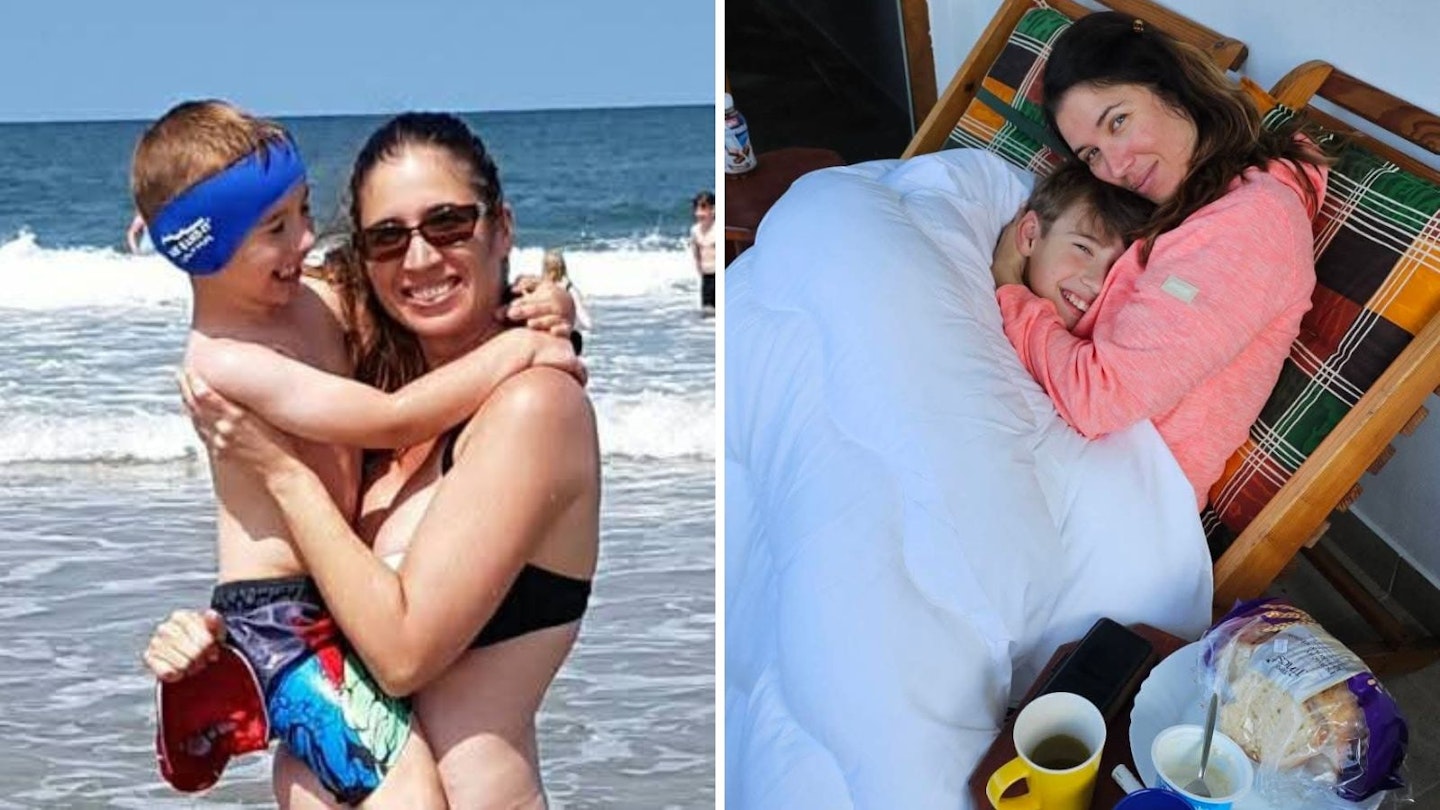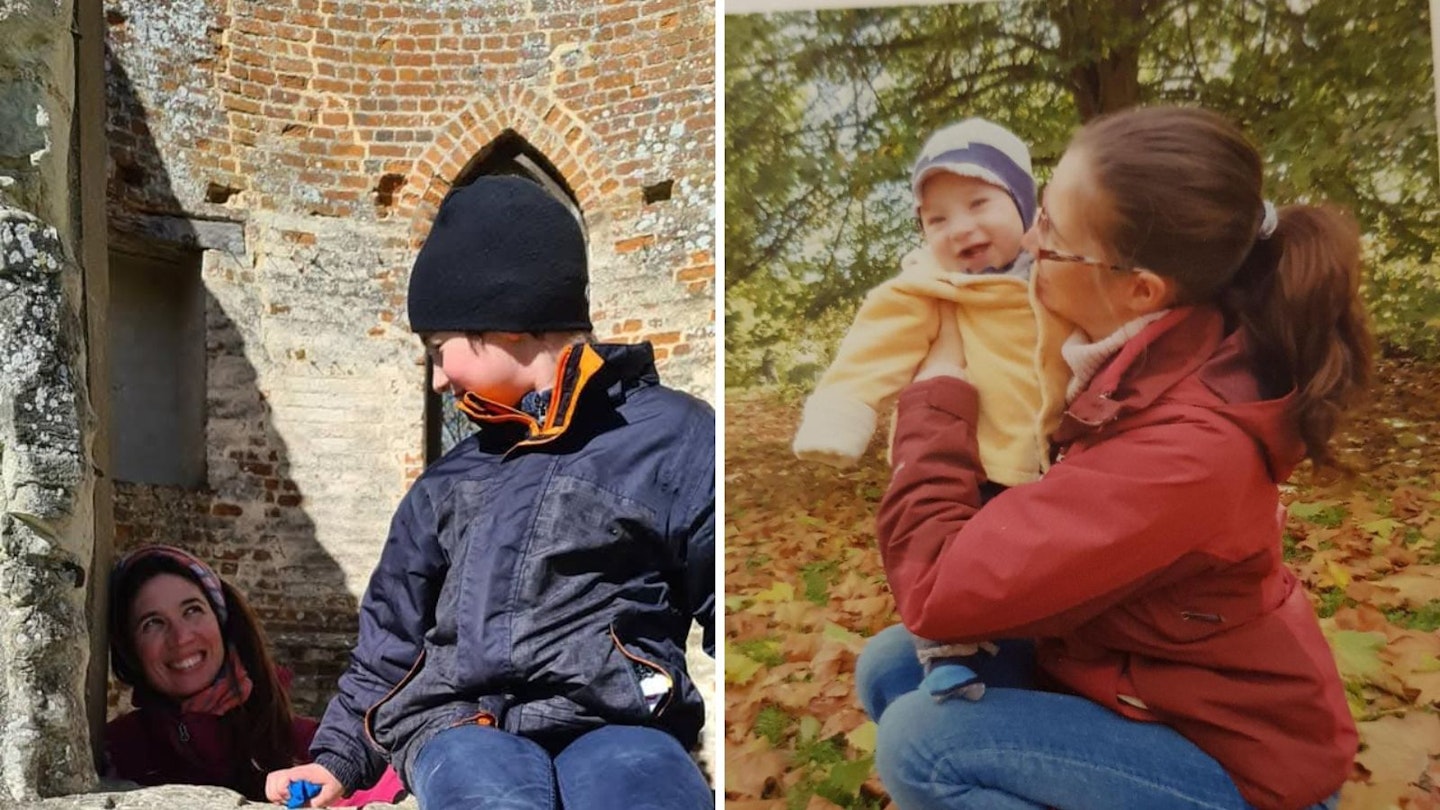When Finance Business Analyst, Miroslava Hornacekova, first became pregnant, she wasn’t just navigating the usual first-time-mum anxieties. Living with profound hearing loss, she had to think about how she would keep her baby safe, communicate through those first toddler years, and cope with a system that doesn’t always meet the needs of parents with disabilities.
“When I found out I was pregnant, I was over the moon, but the joy came with a layer of anxiety,” Miroslava shares. “I’d started losing my hearing after an illness when I was just two years old. Throughout childhood, I managed, but in my teenage years, it got much worse; it felt like the world was slowly getting quieter around me. By the time my husband and I were talking about having children, doctors had warned me that pregnancy hormones might make my hearing deteriorate even more.”
Still, motherhood was something she always wanted. “It was definitely on our minds when we were discussing whether to have children, but I was willing to take the risk. I knew I wanted to be a mum.”
Her biggest worry was simple but profound: how would she know when her baby needed her? “I kept imagining being home alone and not hearing my baby cry,” she says. “Even when I visited friends with newborns, I never knew when their baby had woken up. That stayed with me.”
Communication was another concern. “I worried about the toddler stage,” she admits. “Little ones don’t articulate clearly, and lipreading isn’t always possible. I was afraid I wouldn’t understand what my child was saying, or that they would feel frustrated with me. It was a constant loop of questions in my head: How will we connect? How will I keep him safe?”

Navigating pregnancy with hearing loss
When Miroslava found out she was pregnant, she was frightened, but she felt ready. “My husband was more worried,” she recalls. “He noticed I wasn’t responding as I used to, that my hearing was getting worse. Deep down, I already knew it, but didn’t want to say it out loud. I cried but never doubted that I’d made a good decision.”
In the UK, many pregnant women who are hearing-impaired or deaf, whether they use sign language, lip-read, or rely on hearing aids, are automatically labelled “high risk.” All4Maternity, a hub created by midwives for maternity services, states that too often, this means they’re placed on care pathways that don’t reflect their actual needs and can even make their maternity experience more stressful and less supportive.
Pregnancy brought both joy and challenges. Miroslava quickly realised that most antenatal care resources weren’t designed with hearing-impaired parents in mind. “I don’t think I ever came across any material that related to pregnancy or birth with a hearing disability,” she explains. “Having an ‘invisible’ disability can be challenging, and because no hearing aids can help in my case, people often assume my accent is a language barrier. Sometimes it felt easier to let them think that than to be labelled as a disabled person.”
Even antenatal classes could feel isolating. “They would screen videos about breastfeeding, but none had subtitles, so I had to work out what it was about from the images. My husband filled in the gaps afterwards. You really have to make yourself ‘special’ to get the information you need. It shouldn’t be like that, subtitles and accessible communication should be there as standard.”
The birth experience
Miroslava recalls how nervous she was when her husband wasn’t around, and thankfully, healthcare professionals allowed him to attend all appointments with her. He became her safety blanket, though this sometimes created its own challenges. “I remember one appointment where the midwife addressed all the questions to him,” she says. “I know I was probably hormonal, but I suddenly felt so useless. She was asking my husband how I was feeling, and I was sitting right there.”
Labour itself was long and intense. After 48 hours, she needed an emergency C-section. “This was probably one of those times I didn’t care that they were speaking to my husband more than to me; I was just grateful I didn’t have to talk to anyone.”

Finding strength in the postnatal weeks
It was the days after the birth that truly tested her. “I had to stay in the hospital for a week, and suddenly I was there on my own without my husband or family. I was so worried I would miss my son’s crying that I didn’t want to sleep.”
One nurse noticed that the exhausted new mum was always awake when she did her routine nightly checks and called in the hospital psychologist. “They thought I was experiencing postnatal depression. We talked about my fears, and she arranged for the care team to look after my son for a few hours at night so I could rest. She told me I didn’t need to be a perfect mum and that the best thing I could do for my son was make sure I was rested and okay. I will never forget that. I kept reminding myself of it through those first weeks.”
When Miroslava finally came home, her mum stayed with the family for three months, which was a huge help. “It took time before I could relax when I was alone with my son. I felt like I had to have all my senses switched on, 100 per cent of the time, just in case. It was exhausting.”
Technology offered some peace of mind. “We bought a sensor baby monitor so I could see him when I was in another room. It helped, but I still kept checking it all night. I know vibrating sensors are available now, I would have really appreciated that back then.”
"Over time, I learned to trust myself. I even developed what I called my ‘mother’s superpower’, a sense that told me when my son was awake. And I realised that it wouldn’t hurt him if he cried for a moment while I got to him. Learning that I didn’t have to be perfect was such a relief,” she says.

Embracing her own parenting journey
As her son Martin grew, Miroslava learned to adapt to situations in her own way. She avoided noisy playgroups where she couldn’t keep up with conversations because she had to keep an eye on a spirited young Martin, and instead spent time with her son in nature, going for walks in the forest or by the lake. “At first I felt guilty, but my midwife reminded me that in the first three years, children mainly need love and a sense of security. That helped me stop putting so much pressure on myself.”
Today, she feels proud of the way her son has grown to be considerate and aware. “As a toddler, he learned very quickly that when I can’t see him, I can’t hear him. And now he’s the first one to tell me if there’s someone at the door or if there’s a noise I can’t hear. We went to the cinema recently and he told the staff how disappointing it was that they didn’t have more subtitled screenings. I felt so proud of him.”
Her advice for other deaf or hearing-impaired parents-to-be is simple: “Don’t be hard on yourself. When the baby is born, it can feel overwhelming, so don’t be afraid to ask for help. You will grow with your child. You will adapt and find your own way, and it will be the right way for your family.”
About the author
Hannah Carroll is our Senior Digital Writer. In her capacity, she curates top-notch listicles, crafts insightful how-to guides, and delivers expert product reviews. As a mother of three, Hannah draws upon her comprehensive understanding of all facets of family life to bring true insight into all the products that make running a home easier.
